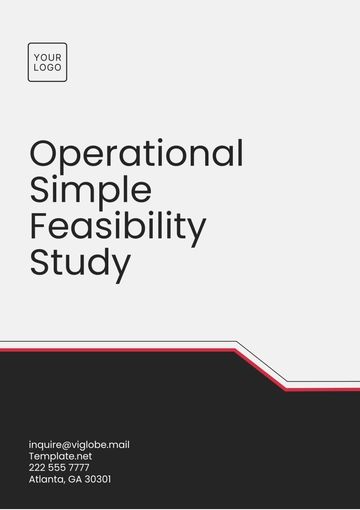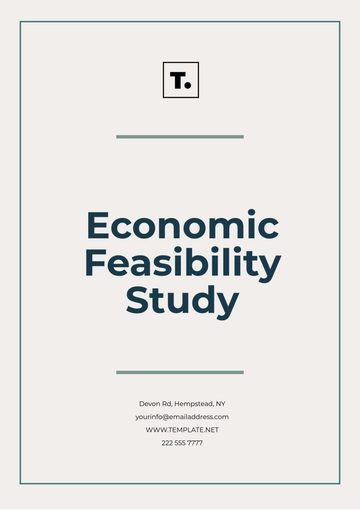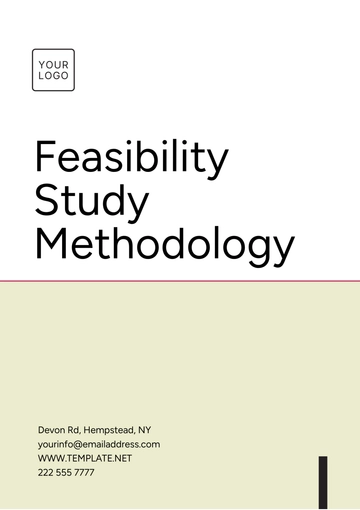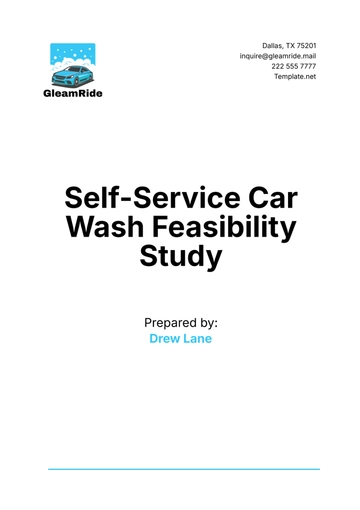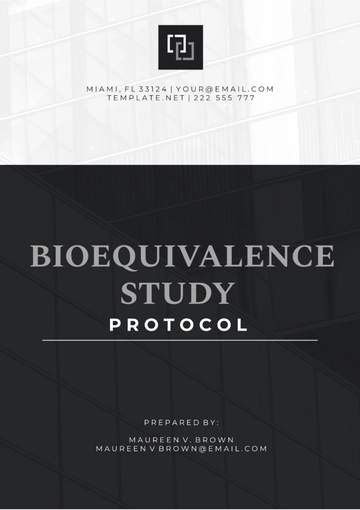Free Industry Printable Feasibility Study

1. Executive Summary
This feasibility study evaluates the potential for opening [Your Company Name], a retail store specializing in organic food products in Rivertown. With a projected growth rate of 10% annually in the organic food sector, this venture aims to cater to health-conscious consumers and promote sustainable living.
2. Industry Overview
Market Size: The U.S. organic food market is currently valued at approximately $62 billion, with expectations to reach $100 billion by 2053.
Trends: Key trends include increasing consumer awareness about food sourcing, a rise in vegetarian and vegan diets, and heightened interest in local and sustainable food practices.
Competitors: Major competitors include Fresh Market and local health food chains, alongside supermarkets that offer organic sections.
3. Market Analysis
Target Market: The main audience consists of health-conscious people aged 25-45, young families looking for healthier choices for their children, and those adhering to specific diets such as gluten-free or vegan.
Market Needs: There is a growing need for affordable organic produce, transparency in sourcing, and knowledgeable staff to guide purchasing decisions.
Market Size: An estimated 30,000 potential customers reside within a 10-mile radius of the proposed location, with 20% identified as likely purchasers of organic products.
4. Business Model
Products Offered: Fresh organic fruits and vegetables, organic dairy products, gluten-free snacks, supplements, eco-friendly personal care items, and locally sourced artisanal goods.
Sales Channels: A brick-and-mortar store complemented by an e-commerce platform for online orders and a subscription box service featuring seasonal produce.
Pricing Strategy: Pricing will be set at a 10-15% premium over conventional items to reflect quality, with occasional sales and promotions to attract new customers.
5. Operational Plan
Location: A 1,800 sq. ft. retail space located in Rivertown Plaza, a high-traffic shopping area with ample parking.
Staffing: A team of 6 employees, including a store manager, 2 cashiers, 2 sales associates, and a marketing coordinator.
Suppliers: Establish partnerships with local farms such as Rivertown Organic Farms and national organic distributors like Organic Valley.
6. Financial Projections
Startup Costs: Estimated at $300,000, including inventory ($100,000), leasehold improvements ($80,000), equipment and fixtures ($70,000), and marketing expenses ($50,000).
Revenue Projections: Expected first-year revenue of $600,000 with an anticipated profit margin of 15%.
Break-even Analysis: The business is projected to break even within the first 16 months, assuming average monthly sales of $50,000.
7. Risk Assessment
Market Risks: Potential economic downturns could lead to reduced consumer spending on premium products.
Operational Risks: Disruptions in supply chains, especially on seasonal products, could affect inventory levels.
Competitive Risks: Larger grocery chains may begin to offer lower-priced organic products, increasing competition.
8. Conclusion
The analysis indicates a favorable market environment for [Your Company Name]. The growing consumer trend towards organic products, combined with strategic marketing and effective operations, positions the business for success in the Rivertown area.
- 100% Customizable, free editor
- Access 1 Million+ Templates, photo’s & graphics
- Download or share as a template
- Click and replace photos, graphics, text, backgrounds
- Resize, crop, AI write & more
- Access advanced editor
Unlock the potential of your projects with the Industry Printable Feasibility Study Template from Template.net. This fully customizable and editable template allows you to tailor every section to meet your specific needs. Enhance your planning process effortlessly using our AI Editor Tool, ensuring a professional and polished presentation for your feasibility studies.





